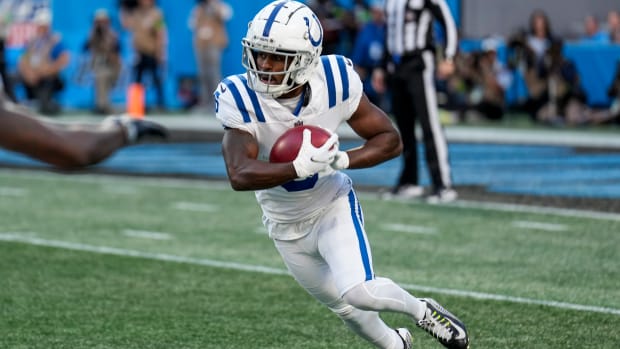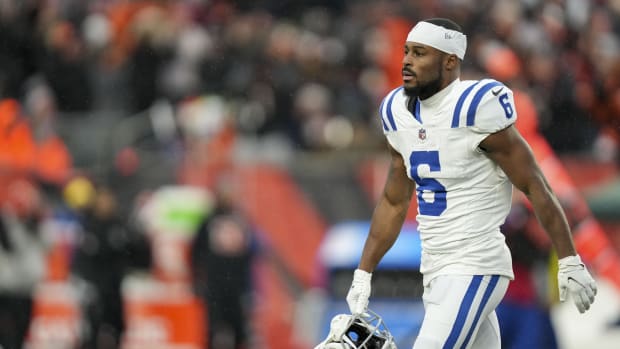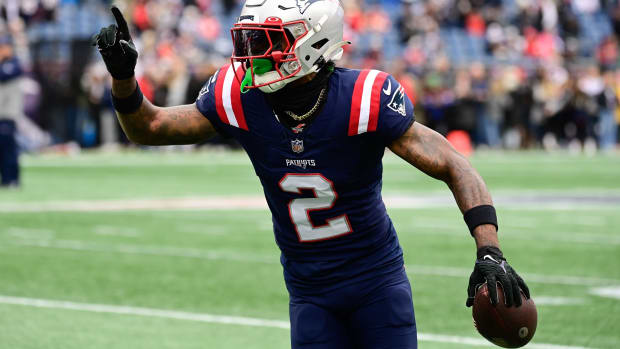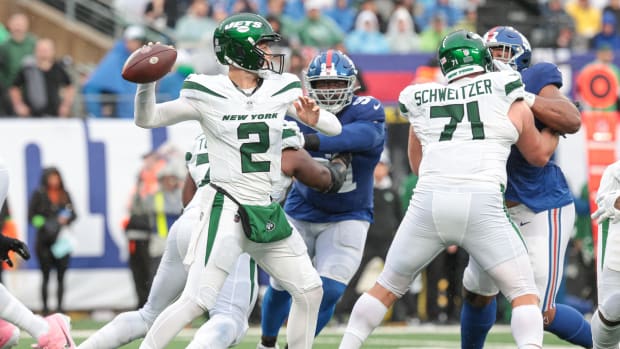He's a great person that happens to be a great quarterback
EAST RUTHERFORD, N.J.-- For 16 years, Eli Manning did things his way, a way that never brought embarrassment or shame to the organization that revered him. He came to work, regardless of how he felt because he knew his teammates were counting on him, and he wanted to set the example.
Despite the temptations that come with playing quarterback in the NFL’s largest media market, Manning never sold out, instead, remaining true to himself and what he believed in—even if who he wanted to be wasn’t necessarily what others were expecting.
Although Manning made it look easy, he admitted that at times there was a struggle given what was happening around him, most notably earlier in his career when he was trying to find his footing.
“There were difficult times in the early years. You're struggling as a player sometimes, and you're, you know you're not winning as many games, and you're dealing with the New York media, and they're harping on you about different things,” Manning said.
“I think I think that's the time when you kinda test it, and you say, ‘I have to stay true (to myself),’ and know that the hard work, the dedication, the commitment, that if you rely on your values, they'll get you through those times. And so when you do that, and you see, you see the progress, and you see little steps of getting better and improvement verifies it.
That steel-like resolve comes as no surprise to David Cutcliffe, who was Manning’s coach at Ole Miss and who is now the head football coach at Duke University where he worked with Daniel Jones, Manning’s successor at quarterback.
Cutcliffe said that Manning, despite his quiet and sometimes shy mannerism, has always had a good idea where he wanted to go and how he was going to get there.
“When I started coaching Peyton (Manning), I started getting to know Eli when he was around 14 or 15 years old, and I think he's always been one of the more focused people,” said Cutcliffe.
“Even young, Eli knew what he wanted to do and how he wanted to do it. I was pretty much happy to hear him say 'my way.' He had that in him when he was young. But I think the beautiful part for him is that New York itself will have matured an athlete or have run them off, and I think every year Eli when he'd come back (for the passing camp held at Duke) and bring some of his teammates, you saw the man in him continue to develop.”
Manning also credited Yankees great Derek Jeter, the newest member of the baseball Hall of Fame and whose career played out very similar to Manning’s.
“You know, Derek was great. He called me my rookie year when we were starting, lost a few games, and he just talked to me about that, that it would get easier and stay the course and be yourself and keep working, and things do improve,” Manning said.
“He was someone who I watched closely and how he conducted himself, how he dealt with the media, how he dealt with fans and how he worked hard and how he stayed humble in all circumstances after so many championships that he's won. He was on top of the world. You know, I took a lot of notes from how he handled New York, so he's been a great role model for me all these years.”
Manning, as he’s always done throughout his career, took things in stride.
“I tried to look at the big picture of things and get a sense of a place where I'm going to be happy and where it feels right,” Manning said.
In the end, what felt right led to legendary status and a send-off equally fitting for a two-time Super Bowl champion and a lifetime humanitarian champion.
“He's a great person—let’s make that clear first--that happens to be a great quarterback,” Cutcliffe said.





